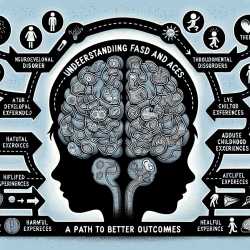Introduction
The transition into parenthood can be a daunting journey, often accompanied by feelings of isolation and uncertainty. In an era where digital solutions are increasingly becoming part of our everyday lives, the potential of videoconferencing as a tool for postpartum support is worth exploring. A recent study titled "Examining How Postpartum Videoconferencing Support Sessions Can Facilitate Connections between Parents: A Poststructural and Sociomaterial Analysis" provides valuable insights into how these digital interactions can be structured to benefit new parents.
Understanding the Study
The study utilized feminist poststructuralism and sociomaterialism to analyze how parents engaged with videoconferencing technology to form supportive connections. Conducted with 37 parents over several sessions, the research highlighted the dual role of technology as both a facilitator and a barrier to interaction.
Parents reported feeling more connected and less isolated through these virtual sessions. However, they also noted challenges such as the lack of opportunities for individual conversations and the "Zoom fatigue" phenomenon, which can affect engagement levels.
Implications for Practitioners
For practitioners in the field of speech-language pathology and other related disciplines, these findings offer a roadmap for integrating videoconferencing into support services. Here are some key takeaways:
- Facilitate Engagement: Encourage participants to use their cameras to foster a sense of presence and connection. This visual engagement helps in building a community feeling among participants.
- Manage "Zoom Fatigue": Be mindful of session length and structure to mitigate the effects of fatigue. Incorporate breaks and varied activities to maintain engagement.
- Encourage Participation: Use structured turn-taking to ensure everyone has a chance to speak, while also allowing for spontaneous interaction through chat features or emojis.
- Address Privacy Concerns: Be transparent about the use of technology and ensure that participants feel safe and secure in sharing their experiences.
Encouraging Further Research
While this study provides a foundational understanding, further research is necessary to explore the long-term impacts of videoconferencing on postpartum support. Future studies could focus on diverse populations and settings to better understand the nuances of digital interactions in different contexts.
Conclusion
Videoconferencing offers a promising avenue for providing postpartum support, especially in situations where in-person interactions are not feasible. By understanding the dynamics of digital interactions, practitioners can better support new parents in overcoming feelings of isolation and building confidence in their parenting journey.
To read the original research paper, please follow this link: Examining How Postpartum Videoconferencing Support Sessions Can Facilitate Connections between Parents: A Poststructural and Sociomaterial Analysis.










